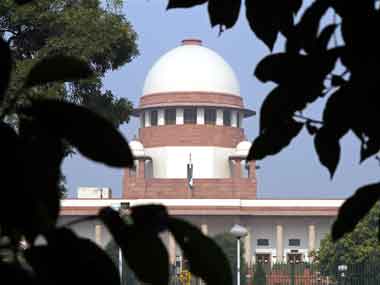In what should come as a shock to the Indian government and the higher judiciary, an arbitration tribunal in London has blasted the Supreme Court for delays in delivering justice to an Australian company which sued Coal India Ltd over a 1990s dispute.
The London-based International Arbitration Tribunal (IAT) has ordered India to pay the Australian company, White Industries, around Rs 50 crore, but the harshest indictment by the tribunal relates not to the dispute itself but the Indian legal system.
[caption id=“attachment_318592” align=“alignleft” width=“380” caption=“Agencies”]
 [/caption]
[/caption]
A report in the Hindustan Times quotes the tribunal as flaying “the Indian judicial system’s inability to deal with the issue in over nine years and the Supreme Court’s inability to hear the appeal for over five years” and concludes that this “amounts to undue delay and constitutes a breach of India’s obligation” under the Indo-Australia Bilateral Investment Treaty (BIT).
With foreign investors getting ready to sue India right and left over several issues - ranging from the Vodafone retrospective tax, to the 2G licence cancellations (Telenor, Sistema), to allegations of oppression of minority shareholders (hedge fund TCI against Coal India) - this verdict is bound to have a major ramifications in India.
Vodafone, Sistema, Telenor and TCI (The Children’s Investment Fund) have invoked bilateral investment treaties to protect their investments and may opt for arbitration in case talks fail to resolve the issues.
Impact Shorts
More ShortsThis is where the IAT order in the Coal India case could send shivers down the spines of the Indian establishment, both government and judiciary.
The Coal India case starts with a dispute in 1998 with White Industries, which had a contract to supply equipment and develop a mine in Jharkhand. The dispute was over whether White was entitled to bonuses for fulfilling its part of the contract.
When Coal India and White failed to agree, the matter went into arbitration and Coal India lost the case. It was ordered to pay $4.85 million plus interest and expenses to White in May 2002, says an Indian Express report.
In September 2002, White moved the Delhi High Court for enforcing its arbitration award, but Coal India moved the Calcutta High Court, which said in a 2003 order that it had jurisdiction to set aside an international arbitration award. A year later, White took the matter to the Supreme Court - and there it has remained till now.
This is where White played its Indo-Australian BIT card. It sought arbitration on the issue of India’s unwillingness to enforce the earlier tribunal award and, in this arbitration, the International Arbitration Tribunal ruled in White’s favour.
The tribunal’s unanimous verdict was reached in just two months of oral hearings in Singapore last year. Its final order, which came in November 2011, is sure to raise hackles in India, especially since it gets into the grey areas of the jurisdiction of national courts in international arbitration cases. It also seems to suggest that BITs can be used to enforce arbitration awards when India has not explicitly agreed to this. (For more details and analysis, read here )
Among other things, the tribunal held that White’s claims were valid under the Indo-Australian BIT since court delays had denied the company “effective means” of asserting claims and enforcing rights with respect to its investment in India," says the Investment Arbitration Reporter.
The award is likely to be controversial for three reasons:
First, it seems to define an arbitration award itself as investment that needs protection through a BIT.
Second, it will raise questions on the jurisdiction of national courts wherever international arbitration is a part of a contract. Also, once a country enters into a bilateral investment treaty that assures arbitration abroad, do the national courts have no say?
Third, can an extra-territorial tribunal make comments on the actions (or inaction, in this case) of the top court of a sovereign nation?
Quite clearly, India’s political class, babudom and black-robed eminences will be a worried lot after the IAT observations in White versus Coal India.
A CPI(M) Rajya Sabha MP, P Rajeeve, has castigated the government for its silence over this global attack on the “independence of the Indian judiciary.”
Since there could now be an increasing resort to BIT arbitration in the wake of the 2G judgement and also increased investor activism, the government may seek to revise existing BITs to avoid exposure to international arbitration clauses in future treaties.
But that avoids the central issue: reducing court delays in India. The IAT’s rap for the Supreme Court was on this count, not on its jurisdiction to over-rule the 2002 arbitration which went in White’s favour.
Isn’t it time we did something on this? As at the end of 2011, there were 3.2 crore cases pending in courts in India. A quarter of these cases were more than five years old. In the Supreme Court, pending cases topped 60,000 in April 2012.
Is this any way to deliver justice?
)